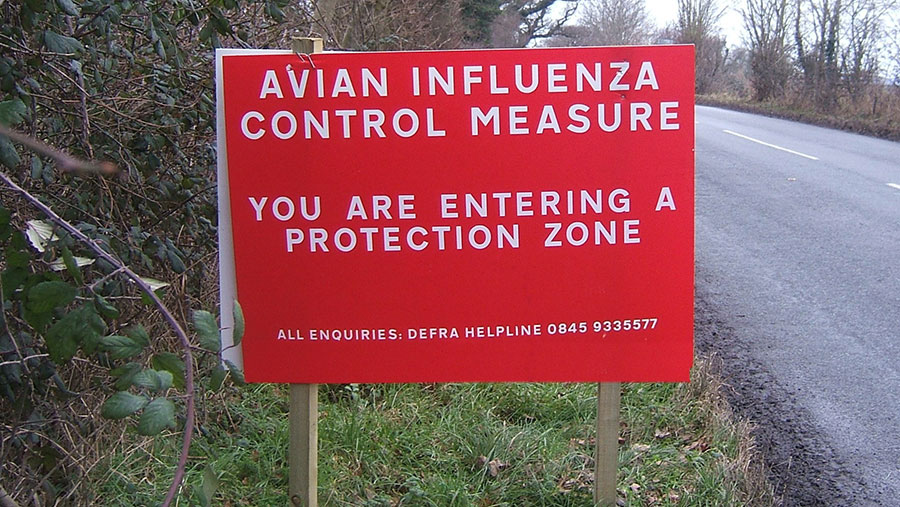GB-wide avian influenza prevention zone introduced as cases soar
 © Adobe Stock/Leslie Batchelder
© Adobe Stock/Leslie Batchelder Government vets have imposed an avian influenza prevention zone (AIPZ) across the whole of Britain amid soaring cases of the virus in poultry flocks.
More than 30 premises have been hit by highly pathogenic avian flu since the start of October, with 20 of those recorded in the past week.
Cases were confirmed in England, Wales and Scotland, bringing the total number since the outbreak began almost a year ago to more than 190.
See also: Why bird flu threat is rising and what can be done about it
The growing threat to poultry means the official risk level has been raised from “medium” to “high” at premises where biosecurity is below the required standards.
Coupled with the rise in case numbers, the increased risk status prompted chief veterinary officers (CVOs) in each region to impose an AIPZ from midday on Monday (17 October).
From that time, it became a legal requirement for all birdkeepers in Britain to follow strict biosecurity measures to help protect their flocks.
AIPZ requirements
- Cleanse and disinfect clothing, footwear, equipment and vehicles before and after contact with poultry and captive birds
- Where practical, use disposable protective clothing
- Reduce the movement of people, vehicles or equipment to minimise contamination from manure, slurry and other products
- Use effective vermin control
- Keep records of mortality, movement of poultry and poultry products, and any changes in production
- Thoroughly cleanse and disinfect housing on a continuous basis
- Keep fresh disinfectant at the right concentration at all farm and poultry housing entry and exit points
- Minimise direct and indirect contact between poultry and captive birds and wild birds
- Ensure all feed and water is not accessible to wild birds
- Keep free-ranging birds within fenced areas, and fence off ponds, watercourses and permanent standing water.
Joint statement
In a joint statement, the CVOs for England, Scotland and Wales said: “Scrupulous biosecurity and hygiene measures are the best forms of defence, which is why we have declared an AIPZ across Great Britain.
All birdkeepers must take action to help prevent the disease spreading to more poultry and other domestic birds.
“The introduction of an AIPZ means regardless of whether you keep a few birds or thousands, you are legally required to meet enhanced biosecurity requirements to protect your birds from this highly infectious disease.”
The measure stops short of a housing order, which would see all range birds brought indoors until the risk had diminished – although a housing order was introduced for most of East Anglia last week.
Speaking at a webinar on the disease, England and UK CVO Christine Middlemiss explained that strict biosecurity was more effective than housing.
It is still possible to introduce the disease on bedding, feed, clothes and footwear even when birds are housed, she pointed out.
Also at the webinar, Dr Andy Paterson, head of the Animal and Plant Health Agency National Emergency Epidemiology Group emphasised how easy it was for flocks to become infected.
One single wild bird dropping can contain thousands of infective doses, Dr Paterson explained. Contact with only a tiny amount of infective material on any vector can lead to an entire flock being wiped out.
‘No’ to vaccination
However, despite the increased risks, Dr Middlemiss ruled out vaccination in the short term.
There were several difficulties with vaccination, including the lack of effectiveness of the treatment, she suggested.
As the virus mutates seasonally, isolating an effective vaccine to tackle it was challenging, Dr Middlemiss said.
She also suggested that it was impossible to distinguish between meat from a vaccinated bird and one that had been infected, creating an insurmountable hurdle for food safety.
The test to differentiate between the two has not yet been developed. Nevertheless, she said work towards solving these issues had risen up the agenda as pressure mounted.
Although Northern Ireland has also recorded cases in the past seven days, the chief vet there has not yet introduced an AIPZ across the whole province.
